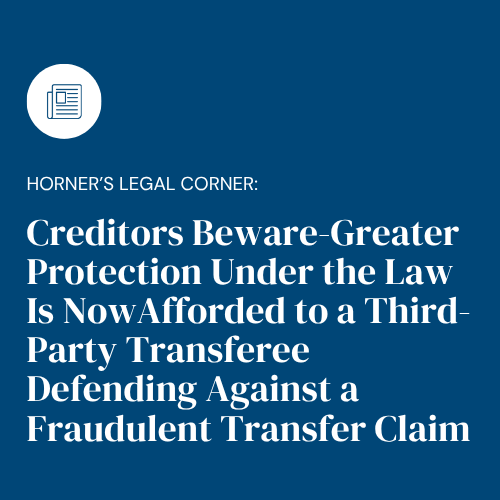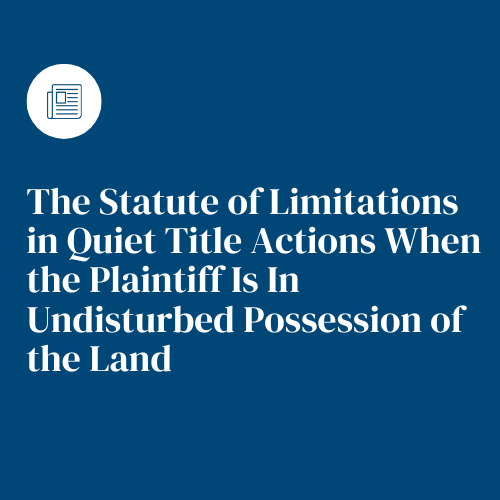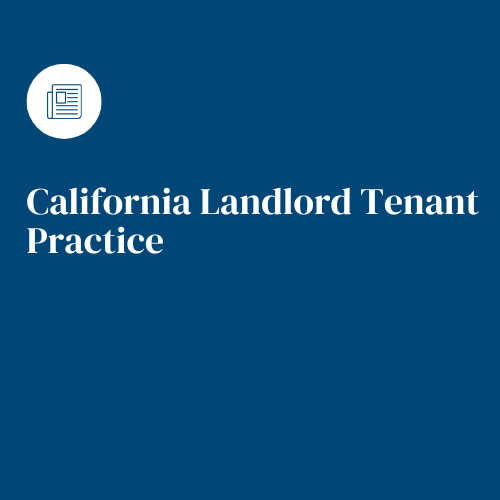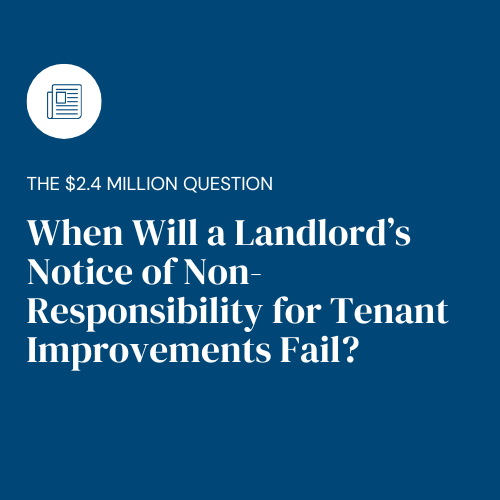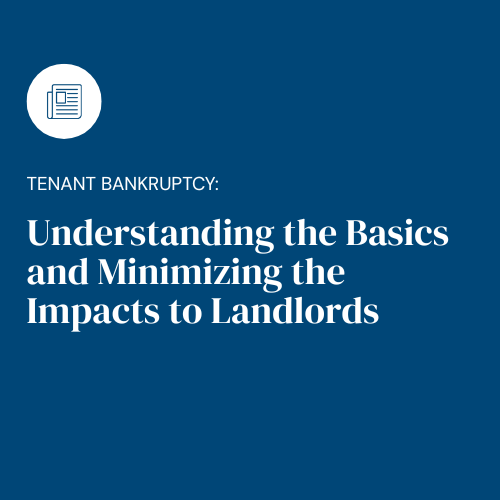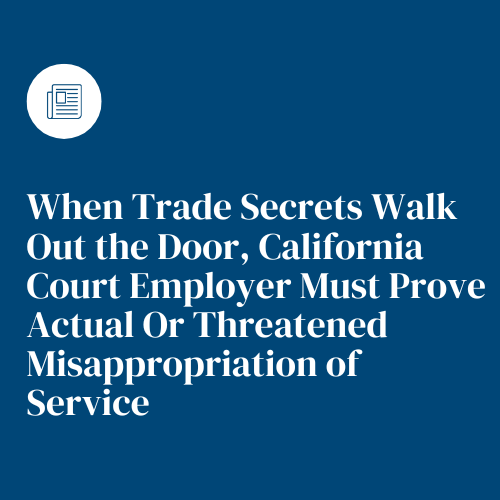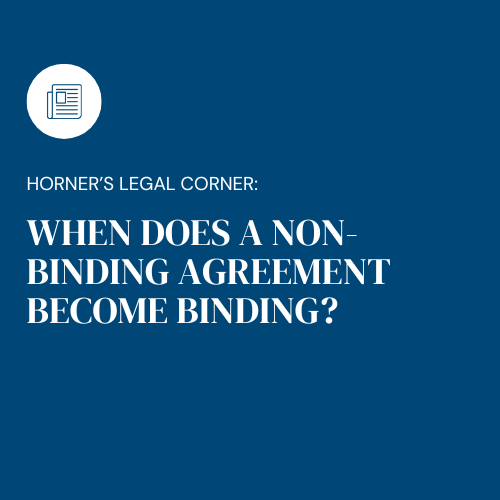Broadening Judicial Review of Private Arbitration Awards
CONTACT
Cliff Horner
Email Address: chorner@hornerlawgroup.com
In an unexpected and otherwise stunning reversal, the California Supreme Court in Cable Connection, Inc. v. DirectTV, Inc., 44 Cal. 4th 1334, recently ruled in favor of permitting expanded judicial review of private arbitration awards. Given the customary practice of including arbitration provisions in a variety of real property agreements, we believe the Court's decision is particularly noteworthy in light of the considerable impact it could have on the presumed finality of arbitration awards.
According to the California Arbitration Act ("CAA"), courts may only vacate private arbitration awards in circumstances involving corruption, fraud or prejudicial misconduct on the part of the arbitrators. Not too long ago, in the seminal case of Moncharsh v. Heily & Blass, (1992) 3 Cal. 4th 1, the California Supreme Court first addressed the issue and upheld the general rule summarized in the CAA. In a series of three subsequent decisions, the California Court of Appeal upheld Moncharsh, and went even further by refusing to allow parties to an arbitration agreement to contractually agree to expand the scope of judicial review beyond the limited circumstances set forth in the CAA. Earlier this year, the U.S. Supreme Court also weighed in on the issue in the case of Hall Street Associates, L.L.C. v. Mattel, Inc., 128 S.Ct. 1396, holding that a federal court may only vacate, modify or correct an arbitration award solely on the limited grounds set forth in the Federal Arbitration Act, which grounds closely mirror those of the CAA. It was within this legal framework that the parties to Cable Connection Inc. found themselves.
In Cable Connection, Inc., a group of retail dealers sued DirectTV on behalf of a nationwide class, alleging DirectTV wrongfully withheld earned commissions and assessed improper charges. The retail dealers and DirectTV had previously entered into a written contract which included an arbitration clause which stated, in part ". . . [t]he arbitrators shall not have the power to commit errors of law or legal reasoning, and the award may be vacated or corrected on appeal to a court of competent jurisdiction for any such error . . ." Importantly, the arbitration clause was silent with respect to whether or not class wide arbitration was permissible. The dispute was submitted to arbitration, where a panel of three arbitrators decided that notwithstanding the contract's silence with respect to class wide arbitration, arbitration on a class wide basis was permissible under California law.[^2] In response, DirectTV brought a petition to vacate the ruling, maintaining that the arbitrators committed an error of law by granting class wide arbitration. Although the trial court agreed with DirectTV and granted the petition to vacate, the Court of Appeal reversed the decision, holding that private arbitration awards are not subject to expanded judicial review beyond the specific reasons stated in the CAA. Rather unexpectedly, especially in light of the Court's own previous ruling in Moncharsh, the California Supreme Court ruled in favor of the trial court and held that it had acted properly in vacating the arbitrators' decision.
In its analysis, the Court first rejected the notion that the strict interpretation of the FAA (and, hence, the CAA) by the U.S. Supreme Court in Hall Street was controlling. The Court found that the U.S. Supreme Court specifically left open the possibility that individual state statutes may permit broader judicial review of private arbitration awards beyond the limited circumstances stated in the FAA. Second, in seeking to bridge together two fundamental principles of California law, the Court reaffirmed the general California rule favoring limited judicial review of private arbitration awards pursuant to the CAA, while at the same time ruling in favor of allowing parties to expressly agree that the arbitrators' final decision could be subject to judicial review for legal error. In other words, although arbitrators commonly base their decisions on general principles of justice and equity as opposed to strict interpretation of the law (which is the supposed trade-off parties to an arbitration agree to in exchange for quicker and less expensive results), the ruling in Cable Connection, Inc. not only preserves the CAA but allows parties to elect whether or not to limit an arbitrators' otherwise broad powers by subjecting the arbitrator's decision to judicial review for legal error or misapplication of the law.
Although the Court's ruling was an ultimate victory for the principles of freedom to contract and in expanding the previously limited circumstances in which arbitration awards could be subject to judicial review, the Court's ruling left unresolved the more crucial issue of the specific language parties to an arbitration agreement must use to ensure such expanded judicial review, should the parties so desire. On the one hand, the Court acknowledged that language which simply requires an arbitrator to "follow the rule of law" or to make his or her decision "on the basis of the parties' legal rights" may not be enough to safeguard the parties' right to seek any desired expanded judicial review. By failing to expressly provide for an expanded scope of review, prevailing California law will continue to require that parties to an arbitration agreement accept the risk of possible legal error in exchange for the benefits of a quick, inexpensive and conclusive resolution of their dispute. On the other hand, the Court refused to advise whether any specific terminology or legal phrasing would be sufficient to confer an expanded scope of review, instead recommending only that any parties' seeking to allow such an expanded judicial review do so "explicitly" and "unambiguously". Therefore, while it remains unclear whether and to what extent courts will enforce differently worded contractual provisions purporting to authorize expanded judicial review, the language used in the DirectV agreement provides at the very least a good example of the type of language that should be used to remove some of the uncertainty.
If nothing else, the Court's decision in Cable Connection, Inc. serves as a healthy reminder that California law does not generally permit expanded judicial review of private arbitration awards beyond the scope of the CAA and that parties who fail to appreciate the significance of the terminology used in the arbitration agreement could find themselves in a situation where they are forced to accept an arbitrator's decision which is potentially fraught with legal error. Therefore, before agreeing to the terms of any arbitration agreement, the parties would well advised to not only carefully review the exact wording of the agreement itself, but also consider revising the language to not only curtail the arbitrator's otherwise unlimited authority but to ensure that the final decision remains subject to judicial review.
Subscribe to Horner Law Group Mailing Lists
Get the latest significant legal alerts, news, webinars, and insights that affect your industry.





